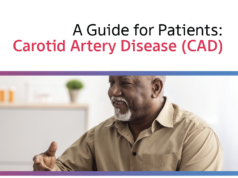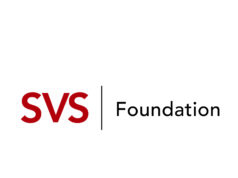
All those steps logged during the SVS Foundation’s exercise challenge in September will help the Foundation—and researchers—take new steps to unlock new treatments for peripheral artery disease (PAD).
The foundation’s Vascular Health Step Challenge, during National PAD Awareness Month, raised money and heightened awareness of the disease process. Foundation members decided to use the funds for a new grant under the Vascular Care for the Underserved (VC4U) program, “intended to support innovative pilot projects that address the unique challenges faced by underserved populations affected by PAD, with an emphasis on improving diagnosis, treatment and patient education.”
Members of both the SVS and the Society for Vascular Nursing (SVN) will be eligible to apply for the $20,000 grant. Details, including the application process and deadlines, are under development and will be announced shortly, once completed.
Foundation Chair Joseph Mills, who directed a previous VC4U pilot project, is excited the program will fund a grant specifically earmarked for PAD and underserved populations. “All vascular surgeons understand the disproportionate effect of PAD on people with poor healthcare access,” he said. “If we can reach and educate people earlier, we can hopefully start with minimally invasive therapy such as medical management, lifestyle modifications and exercise therapy to reduce limb complications and amputation.”
Foundation Executive Board members also released updates on two existing projects: “PAD in west and southwest Philadelphia: Providing education and screening and investigating barriers to care,” from Julia Glaser, MD, and “UMass homeless foot and diabetes screening outreach program,” from Tammy Nguyen, MD.
Glaser, an assistant professor of clinical surgery at Penn Medicine, conducted two health fairs to screen attendees for abdominal aortic aneurysms (AAAs), carotid disease and PAD, as well as for PAD risk factors. She now is undertaking the second part of her grant, to conduct a qualitative study to determine factors that cause patients with chronic limb-threatening ischemia (CLTI) to delay seeking care.
The successful outreach fairs screened approximately 90 patients on various health measures. Patients received the results, guidance on care and encouragement to share the results with a primary care physician.
In the interview study, Glaser is targeting people who needed amputations for vascular disease. Her grant is being extended partially as a result of her maternity leave this year. Study enrollment has been slower than anticipated, “which is actually a good thing—we are doing fewer amputations for vascular disease,” said her colleague, Sarah Harrison Benchimol. Nguyen, from the University of Massachusetts and an assistant professor at UMass Chan Medical School, aims to increase access to comprehensive diabetic foot care in order to prevent, diagnose, and treat diabetes-related foot ulcers among homeless people.
In an update presented earlier this year, Nguyen reported her team has partnered with two community centers— one in a rural area and one in an urban community—to provide comprehensive and multidisciplinary diabetic foot care. For its next event, Nguyen anticipates recruiting pulmonologists and thoracic surgeons as well.
Results from her first event prompted the team to modify outreach site selections to better identify at-risk populations and to serve more homeless participants. The participation number increased by almost 50 % between her first and second events.
Finally, with a goal to ensure follow-up by enrolling eligible patients in a state-sponsored free medical insurance program, the team identified 12 high-risk patients from the two most recent mobile clinics and arranged appropriate follow-up care for them.












